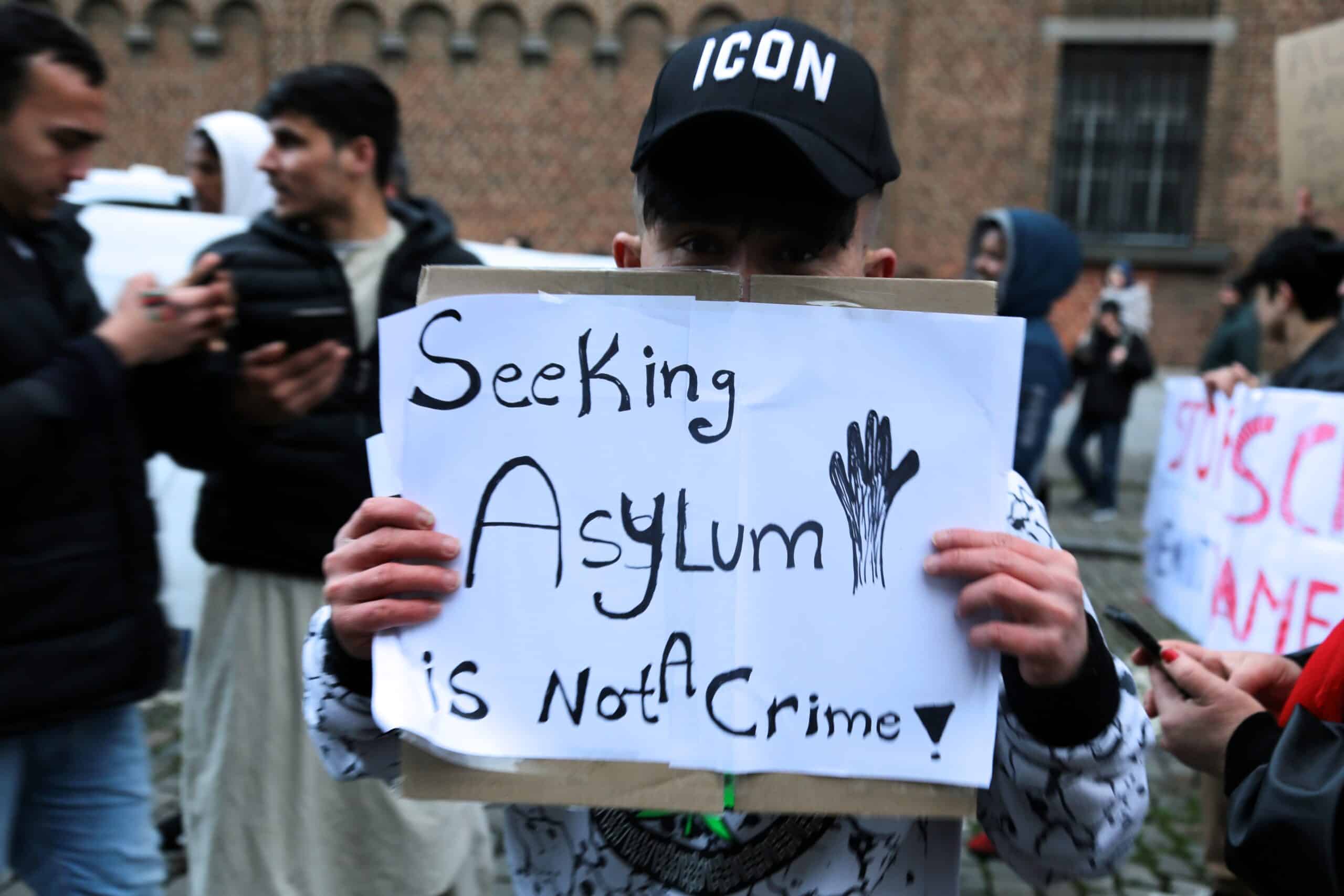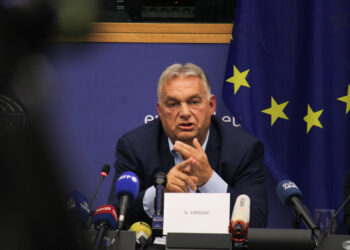Brussels – No deal, at least for now: the Home Affairs Ministers of the 27 member states did not make any formal proposal to amend the EU Return Directive but only held exploratory discussions on the subject. It was certainly the most controversial topic among those the Justice and Home Affairs Council addressed today (Oct. 10) in Luxembourg, which the Hungarian presidency of the Union will use to prepare the work of the European Council scheduled for next week (Oct. 17-18).
Mainly on the agenda in the Grand Duchy was the issue of returns of irregular migrants, aiming to simplify and make them faster to increase their numbers accordingly. The ministers’ discussions centered around the controversial idea, advanced by some 15 member states (including Italy), of creating “external hotspots” (i.e., detention centers) in third countries close to EU borders, where to process asylum claims. In short, the idea is to adopt the “Albanian model” pioneered by Prime Minister Giorgia Meloni for the whole Union.
During the press conference at the end of the meeting, the host, Hungarian Sándor Pintér, put it this way, “The bad guys cannot stay with us, they must be repatriated.” And he denied that the hotspot proposal was a Hungarian proposal, in fact defeating his own premier, Viktor Orbán, who had proudly defended it solo qualche giorno ago during the plenary session of the Euro Parliament in Strasbourg.
The ministers today only preliminarily assessed the feasibility of the idea to start reflecting on possible solutions in compliance with international and EU law but without making specific proposals on how to amend the European legislation on the matter which dates back to 2008: a working option, as diplomatic sources called it. However, in the meantime, it has been put on the table for future elaborations, especially if the two Italian CPRs across the Adriatic prove to serve their purpose.
Among the 27 member states, the consensus for a crackdown on irregular immigration is steadily expanding, which is not surprising given the decisive shift to the right of the political center of gravity in the Old Continent. In addition to the 15 countries that have already asked the Commission to adopt “new measures” to “increase the effectiveness of returns” last May – when the New Pact on Migration and Asylum was adopted – other member states are also gradually hardening their position. The French interior minister, the conservative Bruno Retailleau, said upon his arrival at the meeting that Paris “does not rule out any solution a priori,” opening up the search for “innovative solutions” such as external repatriation hubs since the current legislation would, in his view, make repatriations “virtually impossible.”
The ministers also discussed the need to step up diplomatic efforts with third countries in order to enter into repatriation agreements according to which to expel people they deem undesirable or to incentivize transit countries to detain desperate persons trying to reach Europe before they manage to set sail to risk their lives across the Mediterranean. In short, like the agreements struck (bilaterally or at the EU level) with Turkey and several states in North Africa, from Egypt to Morocco. Retailleau also went so far as to suggest using a “diplomacy of migration,” meaning that the issuance of visas to third-country nationals with whom there are trade agreements should be conditional on those countries taking in their nationals residing illegally on European soil.
The only exception would seem to be Madrid, led by socialist Pedro Sánchez. The PSOE leader defended the need for a migration policy aimed at openness and welcome yesterday (Oct. 9) for Spain and the EU, facilitating legal entry routes rather than persecuting illegal migrants. From Luxembourg, representatives of his government reiterated the importance of repatriations with respect for fundamental rights and for the rules of the Migration Pact, which are due to come into force at the latest by the end of 2026 but to which the outgoing Interior Commissioner, Ylva Johansson, urged full implementation even before that date.
Regarding the Schengen area, it was noted how the free movement zone is “under great migratory pressure,” Pintér’s said, adding that among the priorities for member states must be “the resilience of the external borders” because only through the “defense and protection” of the latter will it be possible to keep the internal ones open.
Representatives from Bulgaria and Romania updated their counterparts on progress at the air and sea borders level. However, full integration into the Schengen system will have to wait for a COREPAR decision, which Pintér hopes can be reached under Budapest’s presidency. After all, the area of free movement has not been enjoying good health lately. Last month, Germany reintroduced controls at all its land borders, while in early October, Denmark also announced that it may soon increase security measures at its borders with Sweden and Germany. This brings to eight the number of Schengen states that have currently activated temporary controls at their borders: the others are Austria, France, Italy, Norway, Slovenia, and Sweden.
English version by the Translation Service of Withub






